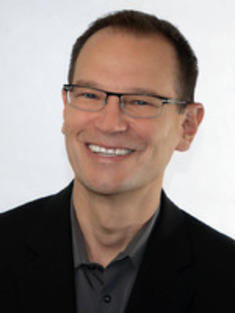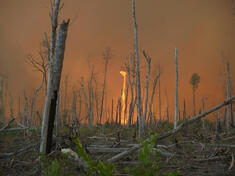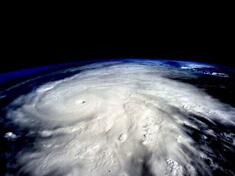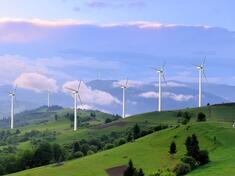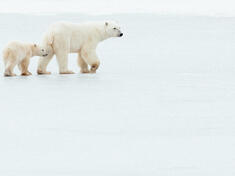In the summer of 1988, America faced an extraordinary heat wave and an extensive drought that cost the country over $77 billion — the most expensive disaster in US history at that time. It was then that Shaun started educating himself about a phenomenon called climate change. He still has a Newsweek article from that year that claimed that with all the severe weather of 1988, people finally understood that we needed to do something.
More than 30 years later, it's clear that we no longer live on our parent's planet: the climate is changing and will continue to change for decades even if we successfully reduce humanity's carbon footprint. Shaun has devoted his career to making sure we are prepared to address the inevitable consequences of climate change — increased drought, more severe storms, melting glaciers, shifting seasons — and their effects on biodiversity, people, and the ecosystems that they rely upon.
As vice president and deputy for climate change, Shaun sets WWF’s strategy for helping partners build social-ecological resilience to climate change through adaptation interventions that are nature-friendly, use nature to help people, and help nature adapt to climate change. Shaun is a thought leader and advocate for stronger resilience policies and action. He is leading the organization in developing guidance and standards for nature-based solutions for climate. With 25 year’s experience in capacity building, training, and leadership development, to date Shaun has educated more than 1,000 WWF staff and partners from dozens of countries across the globe on climate change and adaptation. He is a much sought-after speaker on the topics of resilience, climate change adaptation, and nature-based solutions.
Shaun holds a bachelor’s degree in chemistry and a master’s degree in economic and social development from the University of Pittsburgh. He serves on the boards of directors for the School of Field Studies and Emerging Wildlife Conservation Leaders. He is also on the advisory boards for America Adapts Media and ee360 for the North American Association for Environmental Education, and was member of the Ecosystem-based Adaptation Technical Reference Group for the Convention on Biological Diversity and has contributed to numerous publications on climate change adaptation.
